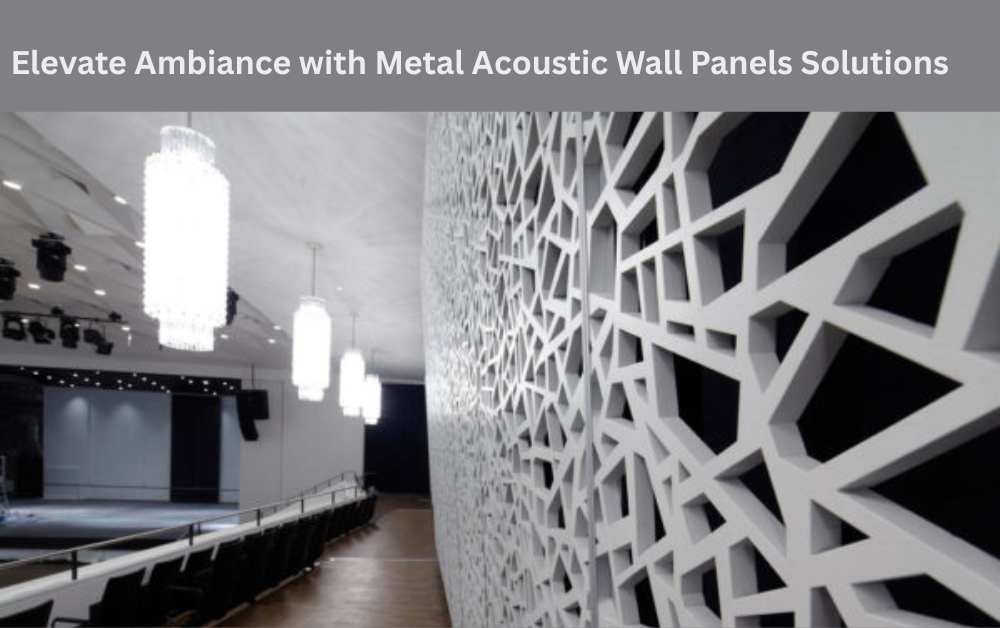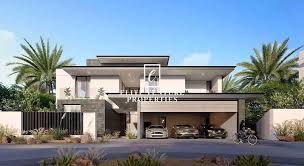In today’s increasingly complex architectural and design landscapes, creating environments that balance aesthetics with comfort is paramount. One of the critical yet often overlooked aspects of this balance is acoustic control. Noise pollution within indoor spaces can significantly degrade the experience, whether it’s a bustling office, a cozy restaurant, or a serene healthcare facility. Metal acoustic wall panels have emerged as an innovative, versatile, and effective solution to elevate ambiance by addressing sound control needs while enhancing interior design. This article explores how metal acoustic wall panels transform spaces, their benefits, design options, and practical applications across industries.
NOTE: Metal Acoustic Wall Panels had successfully enhanced acoustics in educational and healthcare facilities, creating calm, focused environments. They had boosted user experience while maintaining hygiene standards. Contact Perfect Acoustics for reliable, professional acoustic panel solutions.
The Importance of Acoustic Comfort in Modern Spaces
Acoustic comfort influences how people perceive and interact with their surroundings. Excess noise or poor sound quality in a room can cause distractions, reduce productivity, and increase stress levels. In commercial settings, poor acoustics can interfere with meetings and customer experiences. In residential environments, noise disturbances can disrupt relaxation and sleep. Sound control is therefore an essential component of modern interior design, directly affecting user satisfaction, health, and overall ambiance. Acoustic wall panels, especially those made from metal, offer a compelling way to control reverberations and noise, improving the atmosphere without compromising style.
What Are Metal Acoustic Wall Panels?
Metal acoustic wall panels are specially designed panels constructed from metals such as steel or aluminum, engineered to absorb and diffuse sound waves. Unlike traditional acoustic panels made from fabric or foam, metal panels combine durability, modern aesthetics, and high acoustic performance. These panels typically feature perforations or decorative patterns that allow sound waves to penetrate and be absorbed by the material behind the panel, such as mineral wool or foam insulation. This design balances sound absorption with the reflective qualities of metal, offering superior control over a wide range of frequencies.

How Metal Acoustic Wall Panels Elevate Ambiance
Acoustic Performance Enhances Comfort
Metal acoustic wall panels reduce echo and background noise, significantly improving speech intelligibility and auditory comfort. By managing sound reflections, they create quieter, more focused environments where occupants can communicate effectively or relax without distraction.
Visual Appeal Adds to Interior Design
With their sleek, modern finishes and customizable patterns, metal panels serve as design elements as much as functional acoustic treatments. Their reflective surfaces, available in various colors and textures, can complement contemporary, industrial, or minimalist interiors, elevating visual appeal.
Durability Ensures Long-Term Aesthetic Integrity
Metal panels resist moisture, stains, and physical damage, maintaining their appearance and acoustic properties over time. This durability makes them suitable for high-traffic or challenging environments without frequent replacement.
Flexibility for Creative Expression
The ability to laser-cut intricate patterns, add colors, and mix finishes allows designers to use metal acoustic panels as artistic features or branding elements, transforming walls into interactive and memorable spaces.
Materials and Construction Techniques
Perforated Metal Panels
Perforated panels contain a series of holes or slots that allow sound waves to pass through and be absorbed by underlying insulation. The size, shape, and distribution of perforations are engineered to target specific frequency ranges, maximizing acoustic performance.
Solid Metal Panels with Acoustic Backing
Some panels combine solid metal faces with layers of absorptive materials bonded to the back. These systems offer sound blocking as well as absorption, addressing complex acoustic challenges.
Composite Metal Panels
Advancements in materials science have produced composite panels that integrate metal with polymers or fabrics, combining the strengths of each to enhance sound absorption and durability.
Benefits of Using Metal Acoustic Wall Panels
Improved Acoustic Comfort in Diverse Settings
Metal acoustic panels are effective in controlling sound in offices, restaurants, schools, healthcare facilities, auditoriums, and residential spaces, making them versatile across sectors.
Enhanced Safety and Hygiene
Metal’s fire resistance and ease of cleaning make these panels ideal for environments requiring high safety standards and hygiene, such as hospitals and commercial kitchens.
Sustainable and Eco-Friendly Options
Many metal panels are manufactured using recycled materials and can be recycled at end of life, contributing to sustainable building certifications and reducing environmental impact.
Cost-Effective Over the Long Term
Though initial costs may be higher than traditional panels, metal panels’ durability and low maintenance translate into savings over time.
Applications Where Metal Acoustic Wall Panels Shine
Corporate Offices and Meeting Rooms
Metal acoustic panels create quiet, focused workspaces by reducing noise distractions, boosting productivity, and fostering collaboration.
Restaurants and Hospitality
These panels help balance lively atmospheres with acoustic comfort, ensuring pleasant dining experiences without overwhelming background noise.
Educational Institutions
Improved acoustics enhance learning environments, allowing clear communication and minimizing disruptions in classrooms, lecture halls, and libraries.
Healthcare Facilities
Quiet, controlled environments promote healing and patient well-being, with metal acoustic panels contributing to noise reduction and infection control.
Retail and Commercial Spaces
By managing noise, metal panels improve shopper experience and can be incorporated into branding and aesthetic themes.
Design Considerations and Customization
Panel Size and Layout
Designers select panel sizes and layouts based on room size, shape, and acoustic needs to optimize absorption and aesthetic impact.
Color and Finish
Powder coating, anodizing, and textured finishes allow panels to match or accentuate interior color schemes.
Pattern and Texture
Custom perforations and laser-cut designs provide opportunities to create unique patterns, logos, or artistic expressions on wall surfaces.
Installation and Maintenance
Installation typically involves mounting panels on walls or ceilings using brackets or framing systems. Proper spacing and orientation maximize acoustic benefits.
Maintenance is minimal; panels can be cleaned with mild detergents and require infrequent inspections to ensure mounting security.
Future Trends and Innovations
Smart Acoustic Panels
Integration with sensors to monitor noise levels and adaptive materials that alter acoustic properties dynamically.
Lightweight and Flexible Metals
Advancements in metallurgy enable thinner, lighter panels that maintain acoustic and structural performance.
Enhanced Environmental Certifications
Focus on using sustainable materials and processes to meet evolving green building standards.
Conclusion
Metal acoustic wall panels uniquely combine form and function to elevate ambiance across a vast array of environments. Their superior acoustic performance reduces noise pollution and reverberation, while their customizable designs enrich interior aesthetics. Durable, sustainable, and versatile, these panels offer a long-lasting solution for anyone seeking to improve the acoustic comfort and visual appeal of their spaces. As innovation continues, metal acoustic wall panels will remain at the forefront of architectural acoustics and design excellence.
For More Isightful Articles Related To This Topic, Feel Free To Visit: techners.net






Leave a Reply